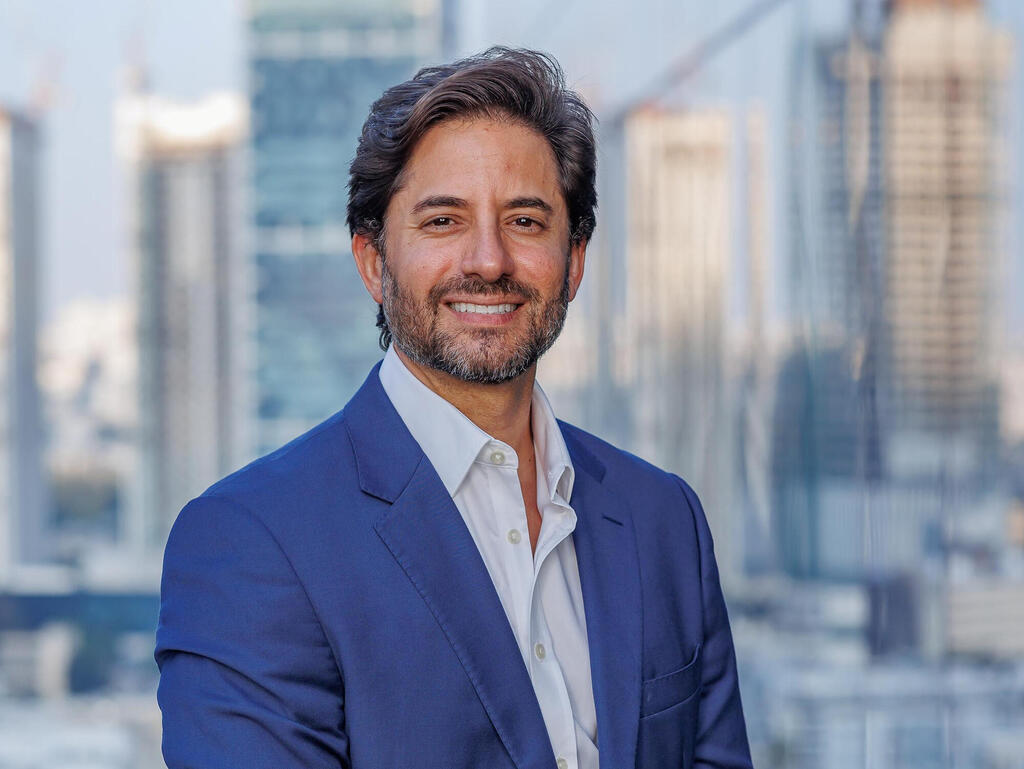
Israeli pension funds shift toward private investments and S&P 500 as high-tech exposure drops
Despite war and political instability, Israel’s institutional investors expand into private funds and global markets, reducing high-tech exposure while managing over 2.5 trillion shekels in assets.
Pension managers in Israel are increasingly shifting their focus to investments that track the S&P 500 index, reducing exposure to high-tech investments while increasing their allocation to private funds. This is according to a report by Leader Private Capital, obtained by Calcalist.
The report examines the period from July 2023 to July 2024, analyzing the impact of the ongoing war and political upheaval on the investment decisions of Israeli institutional bodies. The findings indicate that unlike during the COVID-19 pandemic—when there was an almost complete halt to investments in non-tradable channels—this time, investment managers have continued to allocate funds to private investment funds, though at a slower pace.
Itay Elnatan, Managing Partner and CEO of Leader Private Capital, who co-authored the report with Ariel Schrier, believes that institutional bodies have slightly slowed their investments in non-tradable channels due to high uncertainty and a desire to ensure liquidity. "The past year has been challenging for institutional investors due to the ongoing war. Yet, despite the adversity, they are demonstrating impressive growth in managed assets, something unparalleled in any other country," Elnatan told Calcalist. "We expect exposure to investment funds and private investments to continue growing, reaching a third of total managed assets by the end of the decade," he added.
Indeed, after years of underexposure to private investments, Israeli savings managers are closing the gap with global trends. This shift is evident across various private investment sectors, even in real estate, where Israeli institutions historically preferred direct investments. Since 2016, the proportion of pension savings managed in private investment funds has steadily increased, reaching 15% over the past three years. While this is still lower than the global average of 28%, Leader reports that the largest Israeli pension funds and general insurance routes are now nearing the global average, with 25% of their assets managed in private funds by mid-2024.
As of mid-2024, the total assets managed by Israeli institutional investors exceeded NIS 2.5 trillion, a 6% increase compared to the end of 2023. In just six months, an additional NIS 148 billion was added to managed assets, following an increase of NIS 216 billion in all of 2023. These figures demonstrate that, despite the war and severe economic challenges, pension deposits remain high, outpacing withdrawals.
The main concern for the Israeli economy—expected to be felt more acutely after the war—is that a large portion of investment flows are directed overseas, rather than to the local stock exchange, real estate, or infrastructure projects in Israel. One of the most significant trends in the Israeli pension landscape over the past two years has been the NIS 205 billion invested in funds mimicking the S&P 500 index. This trend began even before the October 2023 war, driven by the uncertainty surrounding the political situation and legal reforms, and reached new heights in 2024, bolstered by the strong performance of the S&P 500. In 2023, NIS 75 billion was invested in these index funds, but in the first half of 2024 alone, the amount surged to NIS 130 billion.
In addition to this surge in foreign exposure through tradable investments, non-tradable channels—mainly private investment funds—also reflect significant foreign exposure. Private investment funds and direct investments grew by NIS 15 billion, or about 5%, between July 2023 and July 2024, reaching a total of NIS 300 billion (or NIS 383 billion when including future liabilities). According to Leader, 81% of these investments are directed to foreign funds. In contrast, the real estate sector remains predominantly locally focused, while infrastructure investments are concentrated in projects in North America and Europe. A decade ago, 40% of institutional private investment was directed to Israeli funds, but today that figure has dropped to under 20%.
Israeli high-tech is also feeling the effects of these shifts, as one of the few sectors in which Israeli institutions have decreased their investments is venture capital and direct investments in companies (co-investment).
Leader's report divides non-tradable investments (excluding non-tradable bonds) into four main categories: private equity (PE) funds, real estate, debt, and infrastructure. Approximately half of the total investment, NIS 165 billion, is allocated to private equity funds, with NIS 95 billion directed toward real estate and around NIS 120 billion divided equally between debt and infrastructure funds. Within private equity, leveraged buyout (LBO) funds—such as those managed by Blackstone internationally and FIMI or Fortissimo locally—are the most popular, capturing 42% of the capital. About 70% of the money in this sector is directed toward mature companies, while 30% is allocated to growth companies and younger startups. Following a record-breaking period of high-tech investment from 2020 to 2022, exposure to this sector has declined over the past year. This decline is partly attributed to the end of the government’s "Route 43" program, which provided institutions with protection of up to 40% against losses in their venture capital portfolios. Although the Israel Innovation Authority recently launched a new benefits program, institutional investors have been slow to return to venture capital funds, as the new plan focuses on enhancing positive returns rather than providing a safety net for losses.
In real estate, the key trend is the growing shift from direct investments to fund management. As of mid-2024, only 36% of real estate investments were managed directly, while 64% were managed through funds—a significant shift from 2020 when the split was nearly even. Directly managed portfolios remain largely concentrated in Israel, while externally managed investments are mostly overseas.
If current growth rates in pension assets and interest in non-tradable channels continue, Israeli savers’ exposure to private investment funds could exceed NIS 1 trillion within five years. According to Leader’s analysis, this would mean that nearly a third of total pension assets will be managed in private funds by the end of the decade, with total pension assets projected to reach NIS 4 trillion. In comparison, 30% of pension savings in Europe and Asia are already allocated to private fund managers.














